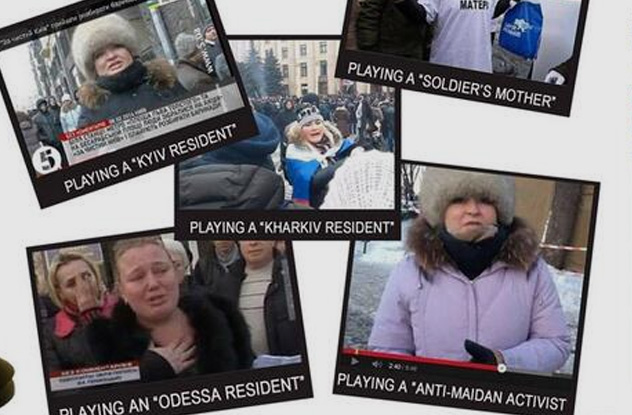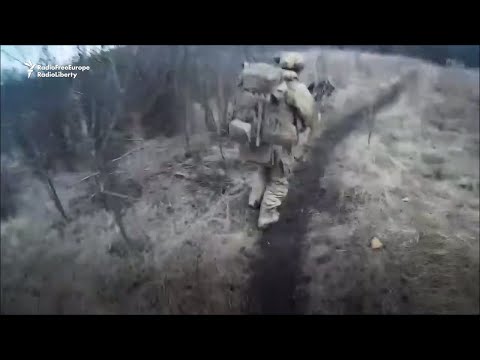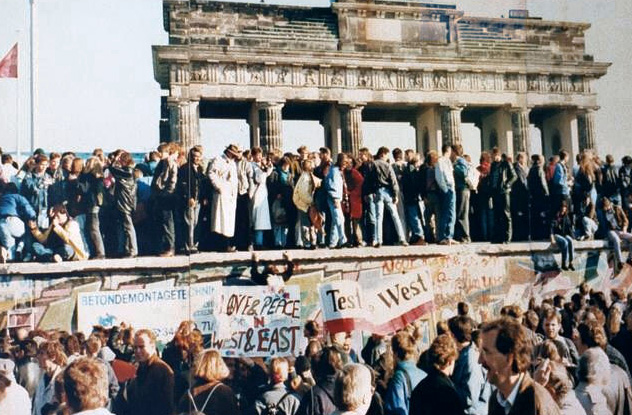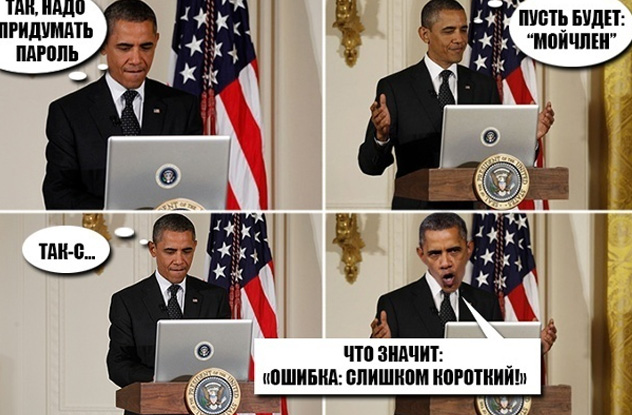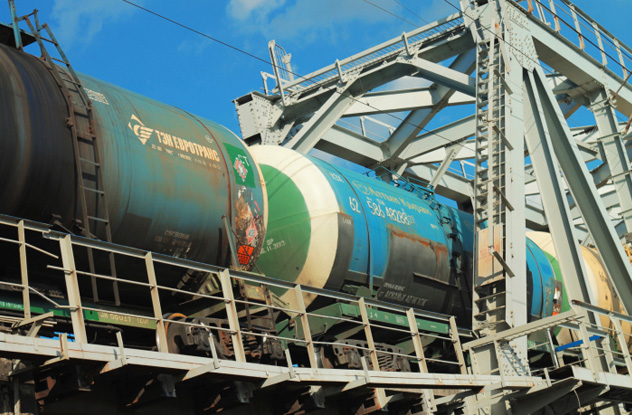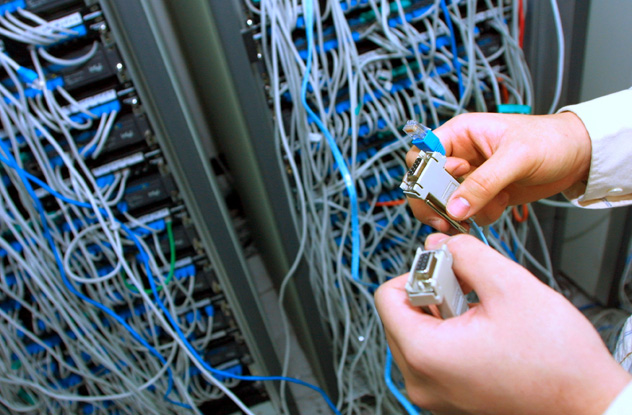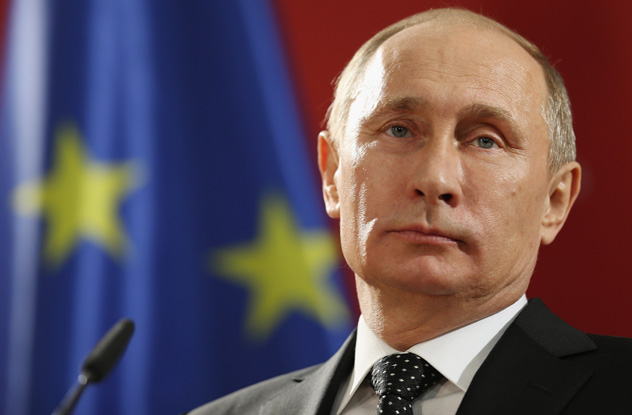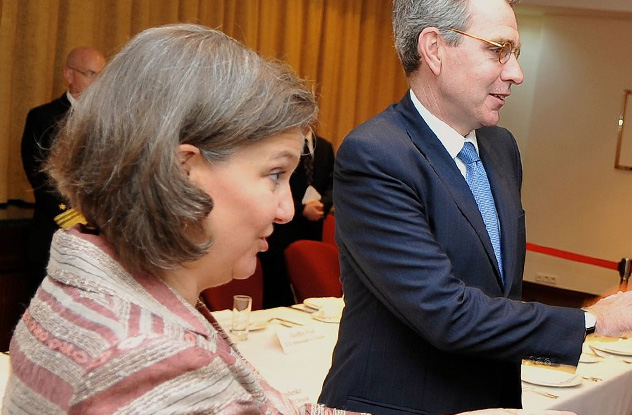Welcome to Russia. With the Baltic states preparing for being invaded and the US declaring the threat from the Kremlin’s cyber attacks “more severe than we have previously assessed,” we’re seeing an explosion in Cold War–style propaganda. The breadth of Moscow’s new capabilities is astounding—and utterly insane.
10Controlling The News (With Actors)
On February 27, 2014, state-owned Russian TV channel NTV broadcast a propaganda coup. Live in Simferopol, they captured Crimean self-defense units seizing the parliament to protect it from Ukrainian nationalists. As part of their broadcast, they included an interview with a local man who sang the praises of the self-defense forces. Or so it seemed. When Ukrainian fact checker StopFake.org looked into the video, they discovered that the supposedly local man was a professional actor from Chechnya. Looking back over news reports associated with Russia’s Ukrainian actions, the same faces keep emerging time and time again. One woman was identified in five different news reports, alternately playing residents of several different towns. Conveniently, all five of her characters were pronouncedly pro-Russian. In some cases, this duplication has become farcical. In April 2014, state-run Rossiya 1, NTV, and NTS aired interviews with, respectively, a civilian attacked by a Ukrainian mob, a German neo-Nazi, and a Ukrainian-German pediatric surgeon. All three were played by the same actor with the same bandage on his nose in each interview. When people pointed the discrepancy out, NTV responded by claiming it was a Western hoax designed to discredit pro-Russia journalists. Then they went an extra step and said that the man was schizophrenic, that he truly believed all the stories he told, and that he’d successfully tricked all three TV stations into believing him. The Kremlin controls the vast majority of Russian TV and print news. When every news anchor is reading from the exact same song sheet, how can you tell what’s real and what’s fake?
9Controlling The News (With Fake Videos)
In September 2014, Russian-language media leaped on the above Russia 24 clip showing a rally in Venice against the “genocide in east Ukraine.” The protesters said, “We are Italian antifascists and we are against the war in Donbass. We are against imperialist Europe.” When StopFake investigated, they found a passer-by had filmed Russia 24’s crew covering the protest. Their own video of the events showed the director giving the protesters orders and telling them how to act. When actual faking becomes too hard, reporters simply drag existing footage off the Internet and call it news. In December 2014, Rossiya 1 broadcast a documentary showing how American homosexual propaganda was corrupting the West. It included a clip of a boy coming home to find his dad had plastered his room with images from gay pornography. The boy then jumped for joy, as the presenter asked, “Is it appropriate for a child’s bedroom to look this way?” The clip was a commercial that had been recut by users from 4chan. The original had the kid’s bedroom redecorated with monster truck pictures. 4chan’s users simply edited it for humor value, and Rossiya 1 broadcast it as fact. Rossiya 1 is state-owned. Its managers regularly meet with Kremlin officials. It’s the BBC of a country where 90 percent of people get their news through the TV, and it sources that news from message boards.
8Promoting Conspiracy Theories
The official English-language propaganda arm of the Kremlin, Russia Today has unlimited funding and a huge online audience. With heavy hitters like Larry King producing its programs, it even has some claims to journalistic integrity. It also has another aim, far more congenial to Putin’s propaganda war: to spread as many anti-American conspiracy theories as possible. Over the years, RT has claimed the US planned to weaponize Ebola, shot down the still-missing Malaysian Airlines flight MH370, and (in the above clip) deliberately murdered innocent people during the Waco Siege of 1993. They’ve also accused Israel of practicing eugenics. Ever since the Ukraine crisis started, the channel’s gone so openly off the rails that veteran reporters have quit rather than keep peddling their insanity. All this craziness has a clear goal: to undermine trust in Western governments and promote the Kremlin’s party line. It’s a tactic known as Dezinformatsiya, and it’s been around since Soviet times. Back in the Cold War, the KGB would routinely accuse the US of doing things like manufacturing the AIDS virus or assassinating Kennedy. By getting people to question their media, Dezinformatsiya hopes to create a cynical world where a government is too distrusted to drum up support for anything. At the same time, it paints Vladimir Putin as a champion of free speech despite all evidence to the contrary.
7Rewriting The Past
In April 2014, Putin gave his reasons for annexing the Crimea. At the fall of the Berlin Wall, Western leaders had promised that NATO would not expand an inch eastward beyond Germany’s borders. Since the West had broken its promise, Russia could justify taking a chunk of Ukraine. Like so much broadcast out of the Kremlin, this is a gross distortion. Historians with access to millions of Soviet-era documents have found no trace of any agreement with NATO about expanding east. NATO’s own archives tell a similar story, although officials admit better attempts could’ve been made to reassure Russia. The invasion-justifying broken promise is nowhere to be found. Such stories are becoming common currency in Putin’s Russia. Documentaries and reports on the annexation of Crimea routinely fabricate evidence of American tampering. Government addresses claim the infamous Iron Curtain was a Western attempt to isolate and weaken the Soviet states, rather than a self-created border. Back in 2013, Putin even redrew the guidelines for history textbooks so they’d exclude any negative stories from his past.
6Distorting The Internet Debate
We’ve previously covered the Kremlin’s army of trolls paid to hijack message boards with pro-Russia statements. It’s not just with badly spelled, cut-and-paste comments that Putin controls the Internet debate. The Kremlin has an entire department given over to producing memes. In anonymous buildings in St. Petersburg, Russian students work around the clock to create insulting images of Ukrainian and Western leaders. According to StopFake, the goal is to create a vast library of crude propaganda images any troll can call upon at the click of a button. While some focus on portraying Putin as an alpha male, most are simply rude jabs at Russia’s enemies. One repeated motif is to show Ukrainian president Petro Poroshenko dressed as a woman or playing with sex toys. Another is to depict Barack Obama as a monkey, usually accompanied by a racist caption. Meanwhile, the Russian government publicly cracks down on such memes that mock Russian public figures. The point of all this is to undermine message board users’ perceptions of America, Obama, the Ukrainian government, and Europe (usually in that order). There’s even a game plan for each post the trolls make. First, someone makes an anti-West post. Then a second person argues against this with a pro-West line. The first poster responds, and a third then ends the debate by posting a vaguely relevant meme. According to a former troll, this continues nonstop, 24 hours a day, seven days a week.
5Creating Dependency
Away from the sound and fury of propaganda, the Kremlin has other methods for shoring itself up. One has been to leave enemies completely dependent on Russia. According to the writer Peter Pomerantsev, this is done by targeting each country’s weakest spot. In the case of the UK, this has been achieved by constantly flowing billions of dollars of Russian money through London. Worried that sanctions against Russia would hurt London’s reputation as a global financial center, the UK government in 2014 quietly tried to stop the EU from closing Moscow off from financial trading. In continental Europe, dependency comes in the form of energy. With so much gas flowing from Russia, German and Italian energy companies have no choice but to argue against sanctions imposed by their own governments. Meanwhile, places like Hungary and Bulgaria are being offered cheap deals against EU rules that will bind them closer to Moscow. It’s even thought that the Crimea takeover was largely motivated by Putin’s desire to keep Ukraine hooked on Russian energy supplies. The idea is to make Europe so dependent on Russia that punishing Putin with sanctions could feasibly cripple the entire EU. So far, it seems to be working.
4Waging Ambiguous War
In 2007, Estonia was the most wired country in Europe. Millions were being poured into transforming the tiny Baltic nation into a Mecca for Internet entrepreneurs, culminating in the half-serious rebranding of the country as “e-Stonia.” Then, in April that year, a dispute blew up between Estonia and Russia over a Soviet war memorial. Not long after, a wave of crippling cyber attacks brought the country to its knees. Banks, newspapers, and government sites were all targeted. Officials declared that they were under attack. Although most at the time saw Russia as the obvious origin of the hackers, Moscow continues to deny responsibility to this day. This form of attack is known as “ambiguous warfare,” and it’s becoming a common tactic of the Kremlin. While NATO can respond to outright provocation, knowing what to do when your enemy denies involvement is another thing altogether. When Crimea fell in 2014, the sight of Russian army members in unmarked uniforms was a common one. So long as Putin could deny compromising another nation’s sovereignty, the West was effectively powerless. Similar tactics are currently being used to remind EU states of the potential cost of engaging Russia militarily. In the last few months alone, Russian bombers have been spotted off the coast of England and Denmark, while submarines have been detected near Sweden and Ireland. In each case, things have been just ambiguous enough for Moscow to deny responsibility, despite evidence to the contrary.
3Creating An Anti-Western Utopia
At first glance, it might be difficult to see what France’s right-wing Front National party, Greece’s left-wing government, North Korea, China, Britain’s Nigel Farage, and Venezuela have in common. The answer is they all have an anti-West or anti-EU agenda, an agenda the Kremlin is shamelessly feeding off to make friends. Faced with a rapidly expanding EU defined by largely liberal social attitudes, Putin’s Russia is deliberately steering itself in the opposite direction. This allows the Kremlin to draw in a crowd of allies who wouldn’t otherwise be seen dead together. In parts of Europe, this amounts to shilling a firmly anti-austerity line that resonates with the left. Further afield, it often involves anti-gay diatribes that please social conservatives. In at least one country, the focus has been on opposing political correctness. The aim is to soft-sell a vision of Eurasian nationalism that contradicts the EU’s idea of a socially progressive Europe. By styling himself as an opponent of everything groups hate about Brussels, Putin becomes the poster boy for an alternative model. As with his stance against US government surveillance, this results in an image boost even when Russia is doing the very things Putin is publicly denigrating.
2Strategic Misogyny
In 2014, NTV aired a documentary on Ukraine called The Furies of Maidan. Like most of NTV’s output, it served to reinforce Putin’s right to annex Crimea and paint the Ukrainian protesters in a bad light. It did this in an unusual way. It blamed the entire Ukrainian revolution on sexually frustrated lesbians. To be clear, Furies was promoted as a hard-hitting piece of real journalism. Yet its entire modus operandi was to identify prominent Ukrainian activists and international supporters of Kiev and smear them with bizarre allegations. One activist was accused of “breathing heavily” around men in uniform. Another was accused of having naked steam room romps with businessmen. In one of the weirdest sections, US Assistant Secretary of State Victoria Nuland was declared a secret lesbian who also somehow enjoys group sex with male sailors. It sounds nuts, but the documentary was simply feeding into Putin’s anti-West vision. Just as anti-gay views have become entwined with patriotism in Russia, Western decadence is now being tied to female protesters and lesbian politicians. By playing to his core, Putin is shoring up his support at home, while also turning the West into a handy hate figure.
1The Hall Of Mirrors
Memes, documentaries about angry lesbians, conspiracy theories . . . it can be hard to see exactly what the Kremlin hopes to gain out of its recent propaganda tactics. It’s easy enough for websites like StopFake to debunk most of it. But according to a recent article in The Guardian, the Kremlin doesn’t care if its lies are uncovered. Instead, their aim is to spread so many conflicting narratives that truth itself is called into question. The Guardian dubbed this approach the “Hall of Mirrors,” calling it “a kind of linguistic sabotage of the infrastructure of reason.” By creating a plurality of voices, all championing their different versions of the truth, Putin’s henchmen ensure that any real discoveries (like Moscow’s clear connection to the murder of opposition politician Boris Nemtsov) disappear, dismissed as just one more version of events. It’s the same tactic used in certain circles to discredit science. The result is a Kremlin that appears to be everywhere, squatting inside and using every ideology for its own ends. Meanwhile, a jaded public starts to reject respectable news sources like the BBC or the New York Times as just additional voices howling in the wind, no more or less trustworthy than Russia Today. Rather than simply winning the information war, the Kremlin are instead twisting the entire battle to suit their own creepy ends.
